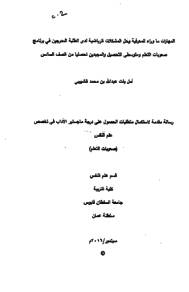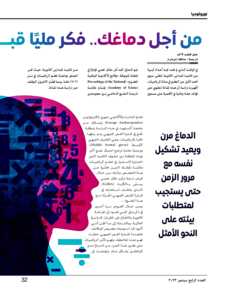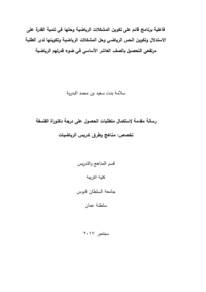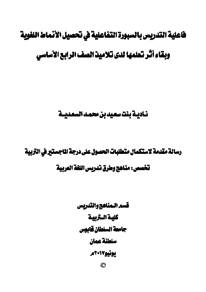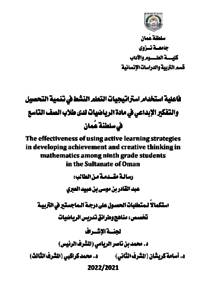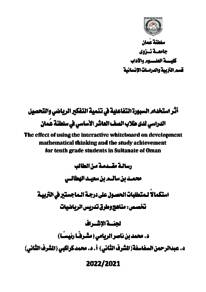Document
المهارات ما وراء المعرفية و حل المشكلات الرياضية لدى الطلبة المدرجين في برنامج صعوبات التعلم و متوسطي التحصيل و المجيدين تحصليا من الصف السادس
Publisher
جامعة السلطان قابوس
Gregorian
2016
Language
Arabic
English abstract
This study aimed to investigate the differences between different groups of students in mathematical problem-solving and metacognitive skills. The study sample included ninety students in grade 6. These students were distributed into three groups as following: 30 students were included in a learning disability program, 30 students were considered average-achieving students and 30 were considered high-achieving students. There were two main purposes for this study. First, it aimed to investigate the differences between the three groups in mathematical problem-solving and metacognitive skills according to group type and gender. Second, it examined the relationship between mathematical problem-solving, metacognitive skills, intelligence test scores (Raven Colored Progressive Matrices) ,long-term memory scores and age. The findings indicated that there is a significant difference between the three groups in both mathematical problem-solving and metacognitive skills, while there were no gender differences in mathematical problem-solving or in metacognitive skills. Students in the learning disability program showed the lowest performance when compared with the other two groups. This study also found that there was a significant relationship between mathematical problem solving, metacognitive skills, intelligence test scores (Raven Colored Progressive " Matrices,), long term memory scores. Also, there was no significant difference between the two scales of metacognition skills (verbal and non-verbal) which means that they alternatively measure similar dimensions. This study suggests that metacognitive skills can potentially contribute to successful mathematical problem solving.
Description
رسالة جامعية
Member of
Resource URL
Arabic abstract
هدفت هذه الدراسة إلى التحقق من الفروق في حل المشكلات الرياضية والمهارات ما وراء المعرفية (اللفظي) لدى مجموعة طلبة من ذوي تحصيل مختلف، حيث شملت عينة الدراسة (۹۰) طالبا وطالبة من الصف السادس، تم توزيعهم كالآتي: (۳۰) طالبا من ذوي صعوبات التعلم، و (۳۰) طالبا من ذوي التحصيل المتوسط، و(۳۰) طالبا مجيدا تحصيليا. وكان الهدف الرئيس للدراسة دراسة تلك الفروق وفقا لحالات الطلبة الثلاث والنوع الاجتماعي، كذلك التعرف على وجود العلاقة بين حل المشكلات الرياضية مع عدد من المتغيرات منها: اختبار الذكاء، والذاكرة طويلة المدى، ومستوى المهارات ما وراء المعرفية، والعمر. وقد أشارت النتائج إلى وجود فروق دالة إحصائيا في حل المشكلات الرياضية ومستوى المهارات ما وراء المعرفية تعزي لحالة الطالب، ولم توجد فروق دالة إحصائيا تعزى للنوع الاجتماعي، وقد كان أداء الطلبة ذوي صعوبات التعلم في كل من: حل المشكلات الرياضية ومستوى المهارات ما وراء المعرفية هو الأضعف مقارنة بمتوسطي التحصيل والمجيدين تحصيليا. كما أظهرت النتائج ارتباطات دالة إحصائيا بين حل المشكلات الرياضية وكلا من: اختبار الذكاء، والذاكرة طويلة المدى، ومستوى المهارات ما وراء المعرفية، وكذلك أشارت الدراسة إلى عدم وجود فروق ذات دلالة إحصائية بين أداء الطلبة على مقياس المهارات ما وراء المعرفية اللفظي) ومقياس المهارات ما وراء المعرفية (غير اللفظي)، ويشير ذلك إلى أن كليهما يقيس الهدف نفسه. وتقترح الدراسة بأن المهارات ما وراء المعرفية يمكن أن تسهم في النجاح في حل المشكلات الرياضية.
Category
Theses and Dissertations

